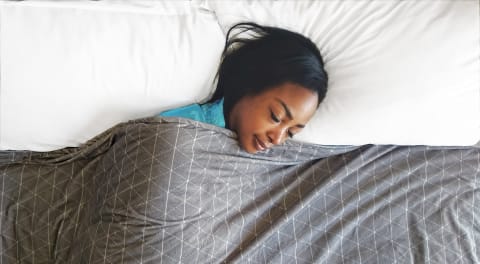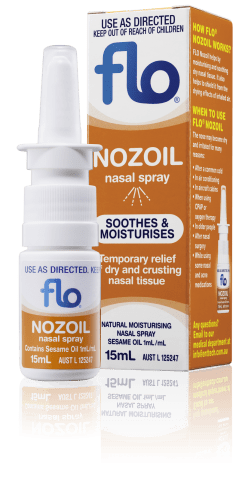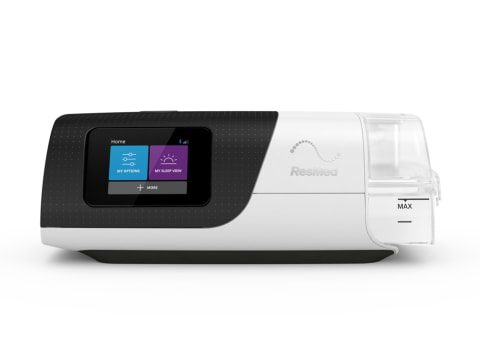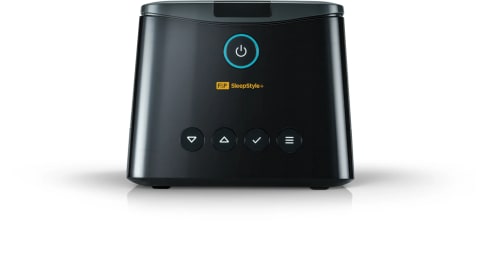Does Medicare Cover CPAP machines
Does Medicare Cover CPAP Machines in Australia?
If you’ve recently been diagnosed with obstructive sleep apnea (OSA) or are currently using a CPAP machine, you might be wondering what support is available through Medicare in Australia. Navigating healthcare coverage can be tricky, especially when it comes to medical devices like CPAP machines. The good news is that Medicare and state-based programs may help cover CPAP therapy—but the rules can vary based on where you live, your clinical condition, and the type of support you need.
On this page, we’ll explain how Medicare-related programs and subsidies for CPAP therapy work in Australia, break down eligibility and compliance requirements, and highlight how Sove CPAP Clinic can support you at every step—from diagnosis to daily use. Whether you’re new to CPAP or managing long-term therapy, this article aims to help you understand your options and make confident, informed decisions.
Cover for CPAP Machines
In Australia, Medicare itself does not directly fund CPAP machines. Instead, financial support often comes through state and territory health programs or the Department of Veterans’ Affairs (DVA). These programs vary from state to state, but most follow similar eligibility criteria.
To access a government-subsidised CPAP machine, patients typically need to:
- Undergo a diagnostic sleep study to confirm the presence of moderate-to-severe OSA (often AHI > 30, though some programs accept AHI > 20)
- Be referred by a respiratory physician or sleep specialist
- Apply for assistance through a public hospital, respiratory clinic, or an approved provider within the health department’s CPAP funding scheme
For example, in New South Wales, the EnableNSW program funds CPAP equipment for eligible adults who meet clinical guidelines. Victoria, Queensland, South Australia, and other states have similar arrangements. DVA also provides support for veterans diagnosed with sleep apnea.
Important Note: People with mild OSA or those diagnosed through home-based sleep studies may not qualify under certain programs. Eligibility also depends on your Medicare status and whether you hold a concession or DVA card.
If you’ve completed a sleep study’, bring your results to your GP or specialist and ask whether you meet your state’s funding criteria. The team at Sove CPAP Clinic can assist you in navigating local processes, understanding required documentation, and connecting you with government-approved providers.
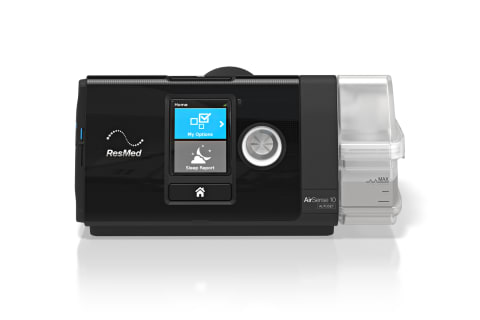 Further $50 Off with code "VALENTINES50"
ResMed AirSense 10 AutoSet 4G CPAP Machine
Further $50 Off with code "VALENTINES50"
ResMed AirSense 10 AutoSet 4G CPAP Machine
Only Basic CPAP Models Covered
When CPAP therapy is funded through state health departments or DVA, the equipment provided is typically entry-level or standard—that is, machines that are clinically effective but may not have the advanced comfort features of premium models.
Government-subsidised machines often include:
- Fixed-pressure CPAP devices that deliver one set pressure throughout the night
- Basic functionality without built-in humidifiers or app connectivity
- Limited customisation options for mask types or accessories
In contrast, premium models like the ResMed AirSense 11 AutoSet or Fisher and Paykel SleepStyle+ Auto offer:
- Auto-adjusting pressure (APAP), which adapts to your breathing in real time
- Integrated humidifiers for added comfort
- Bluetooth or cellular connectivity with smartphone apps to track your progress
While basic machines are effective for many people, those who need more personalised settings or suffer from side effects (like dry mouth, discomfort, or sensitivity to pressure) may benefit more from advanced models.
Once you’ve received a subsidised CPAP machine through a public hospital or DVA program, there are usually compliance obligations to continue receiving support. These requirements help ensure the therapy is being used as intended and that it’s delivering positive health outcomes.
Common compliance guidelines include:
- Using the CPAP machine for at least 4 hours per night,
- On at least 70% of nights over a rolling 30-day period
- Attending regular follow-up appointments with a sleep physician or respiratory nurse
Many CPAP machines automatically track usage and store data internally. Devices like the ResMed AirSense 10 and Philips DreamStation can upload data via wireless connectivity to cloud systems, allowing healthcare providers to monitor compliance remotely.
Private Health Insurance
For patients who don’t qualify for state-funded CPAP equipment—or who wish to access a wider range of models and accessories—private health insurance can offer valuable financial support.
Most extras health insurance policies in Australia cover some portion of the cost for:
- CPAP machine purchases
- Replacement masks and cushions
- Tubing, filters, and humidifier chambers
- Follow-up sleep consultations
Before making any purchase, contact your insurer and confirm what’s covered under your policy. The Sove CPAP team can provide itemised quotes with official provider numbers and assist with submitting claims. We’re also happy to recommend equipment that aligns with your budget and health needs.
ALWAYS FOLLOW THE DIRECTIONS FOR USE. CPAP is used for Obstructive Sleep Apnoea treatment. When considering whether a sleep study or CPAP is right for you, speak to your doctor. Medicare criteria and T&Cs apply.
Frequently Asked Questions
What Are the Criteria for CPAP Compliance with Medicare?
To maintain access to a CPAP machine provided through state or DVA support, most programs require you to meet specific compliance targets. These typically include:
- Using the machine for at least 4 hours per night
- On 70% or more of nights within a 30-day rolling window
Your usage data is recorded directly by the machine. Some devices even send this information to your clinic or specialist through cloud-based services like ResMed myAir or Philips DreamMapper.
Staying compliant ensures you continue receiving equipment and helps your healthcare provider monitor treatment effectiveness. If you’re not meeting targets, you may be offered mask adjustments, pressure changes, or alternative therapies.
If you’re unsure how to track your usage or interpret your data, Sove CPAP Clinic offers complimentary reviews. We’ll walk you through your machine’s data screen, app results, and help troubleshoot any barriers to compliance.
How Does Medicare Pay for CPAP Machines?
In Australia, Medicare does not pay for CPAP machines directly. Instead, CPAP support is offered via state-based programs (like EnableNSW or SA Health) or through the Department of Veterans’ Affairs (DVA) for eligible veterans.
If you’re eligible, you typically receive the machine at no cost, or for a low service/rental fee, through a public hospital or authorised supplier. You will not receive a Medicare rebate or direct payment from the government.
For those ineligible for public support, private health insurance can help offset purchase costs. Some states also operate rental assistance schemes where patients pay a small monthly fee and receive ongoing support and servicing.
How Often Will Medicare Pay for a CPAP Machine?
If you’re receiving a CPAP machine through a government program, most systems allow for a replacement every 5 years. This reflects the standard lifespan of CPAP devices, during which components may degrade and technology may improve.
Early replacements may be approved if:
- Your current machine is faulty or beyond economical repair
- Your clinical condition changes and requires an upgraded model
In such cases, you’ll likely need supporting documentation from your sleep specialist. You may also need to complete a new sleep study if your symptoms have significantly changed.
For private purchases, your insurer’s policy limits determine how often you can claim a new device. Some allow one machine every 3 to 5 years, depending on extras coverage.
What Other CPAP Supplies Does Medicare Cover?
Medicare-linked programs may cover a basic supply of CPAP accessories and parts, though frequency and items covered vary. Some common inclusions are:
- Masks (every 12 to 24 months depending on wear)
- Tubing and filters (every 3 to 6 months)
- Water chambers for humidifiers (every 6 to 12 months)
In many cases, you’ll need to request replacement parts through your hospital or supplier. Others may require out-of-pocket payment unless covered by private insurance.
Sove CPAP Clinic offers a wide range of replacement parts and can help you determine the most affordable schedule for renewing your accessories—keeping therapy comfortable and effective.
Does Medicare Cover Travel CPAP Machines?
No, travel CPAP machines (e.g. the ResMed AirMini) are typically not covered by Medicare or state-based funding schemes. These compact, portable devices are considered optional or luxury items.
However, some private health insurers may provide partial rebates for travel CPAPs if medically justified, or as part of a broader appliance allowance in your extras cover. Check your policy carefully.
That said, a travel CPAP can be invaluable if you travel frequently for work or holidays and want to maintain consistent therapy. They’re lightweight, quiet, and airline-compliant.
Sove CPAP Clinic stocks a range of travel-friendly CPAP models and accessories and can assist with claim documentation if eligible under your insurer.
What Costs Will I Be Responsible for When Medicare Covers a CPAP Machine?
Even with a subsidised machine, you may still incur some out-of-pocket expenses, including:
- Upgrades to a premium model (you pay the difference)
- Replacement masks, filters, tubing, or humidifiers not included in the program
- Accessories like mask liners, heated hoses, or travel bags
- Follow-up consultations (if not bulk-billed)
Additionally, if you stop using the machine or fail to meet compliance criteria, you may be asked to return the device or begin paying a rental/service fee.
Real-world tip: Ask your provider for a breakdown of what is and isn’t included in your CPAP funding.




